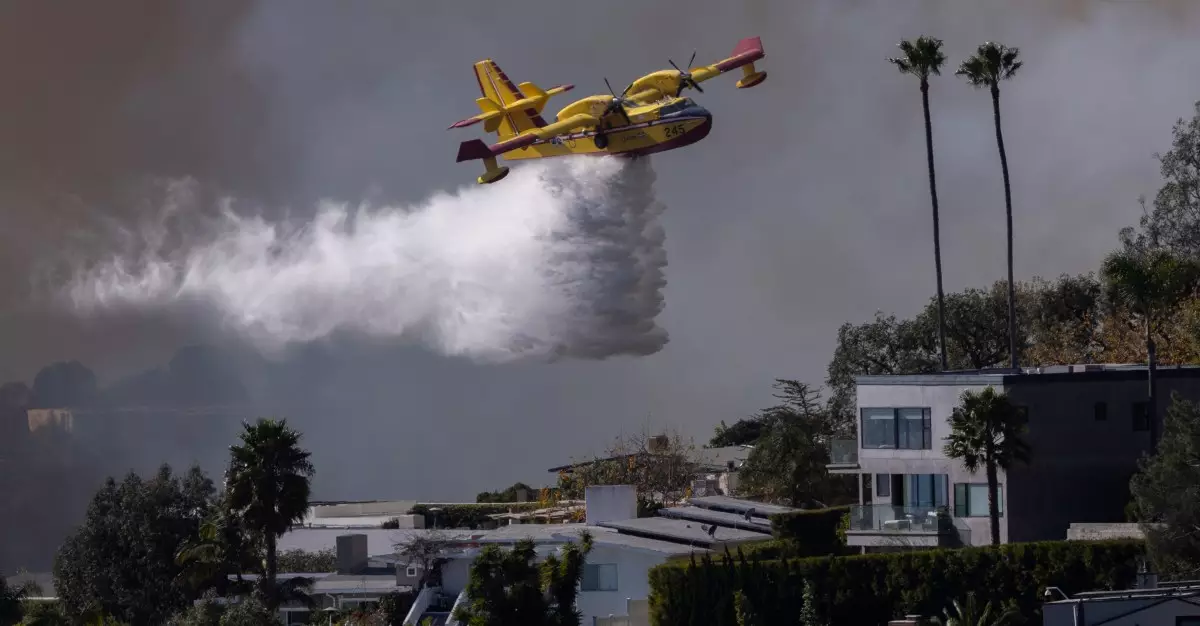In an age where technology provides unprecedented capabilities to individuals, the importance of responsible usage can often be overlooked. The case of Peter Akemann, a prominent figure in the gaming industry, demonstrates how this oversight can lead to serious legal ramifications and ethical questions. Akemann’s decision to operate a drone in a prohibited area during California’s Palisades wildfires not only endangered firefighting operations but also exposed him to potential legal action that could include substantial fines and community service.
On January 9th, 2025, Akemann launched his DJI Mini 3 Pro drone from the top floor of a Santa Monica parking structure. Ignoring Federal Aviation Administration (FAA) regulations that had established Temporary Flight Restrictions (TFRs) due to active wildfires, he piloted the drone at least 2,500 meters away from his launch point. The drone subsequently collided with a Super Scooper water aircraft, which was crucial for fire suppression efforts. The incident not only caused a damaging hole in the plane but also halted its operations, stalling vital firefighting efforts.
Such a scenario raises the alarm over the regulations surrounding drone usage, especially during critical public safety events. The FAA’s TFRs are designed to mitigate risks during emergency operations, and violations can lead to dire consequences, especially when public safety is compromised.
Legal Ramifications: Plea and Penalties
As a result of this reckless act, Akemann faced significant legal repercussions. He agreed to plead guilty, which may spare him from a year-long sentence in prison. Instead, he could be sentenced to perform 150 hours of community service focused on wildfire relief and pay approximately $65,000 to cover the repair costs of the damaged aircraft. However, the court has the final say on whether to accept this plea agreement; if rejected, Akemann may face more severe penalties, including potential fines that could soar up to $100,000.
The plea deal is both a reflection of his acknowledgment of wrongdoing and the legal system’s approach to addressing violations involving emerging technologies. It underscores the necessity for stakeholders not only to understand laws surrounding drone operations but also to appreciate the broader implications these laws carry for the environment and public safety.
Akemann’s actions raise fundamental questions about accountability in an increasingly digital world. As the former president of Skydance Interactive and a co-founder of Treyarch, Akemann represents individuals who wield significant influence and authority within the tech community. When such figures engage in reckless behavior, it not only tarnishes their reputations but also sets a concerning precedent for others in the industry.
Furthermore, Akemann’s situation brings attention to the rising complexity of drone technology and the regulatory frameworks intended to govern their use. For example, DJI, the manufacturer of Akemann’s drone, has faced scrutiny over the effectiveness of its geofencing features. Although designed to limit unauthorized flights, these safeguards can be bypassed if users do not ensure that their devices are updated with the latest no-fly zone information.
The case of Peter Akemann serves as a timely reminder of the responsibilities that come with technological innovation. Individuals must embrace accountability and understand that the consequences of their actions extend beyond personal risks, encompassing broader social and environmental impacts. As drone technology continues to develop, it becomes imperative for both users and manufacturers to prioritize safety and compliance with regulations.
Ultimately, the intersection of technology, judgment, and responsibility remains critical for the protection of public safety and the preservation of valuable resources. Education around the lawful use of drones, combined with robust enforcement of regulations, can help mitigate future incidents that may arise from technological recklessness. It is not merely about flying a device; it is about being a responsible citizen in a rapidly evolving digital landscape.

